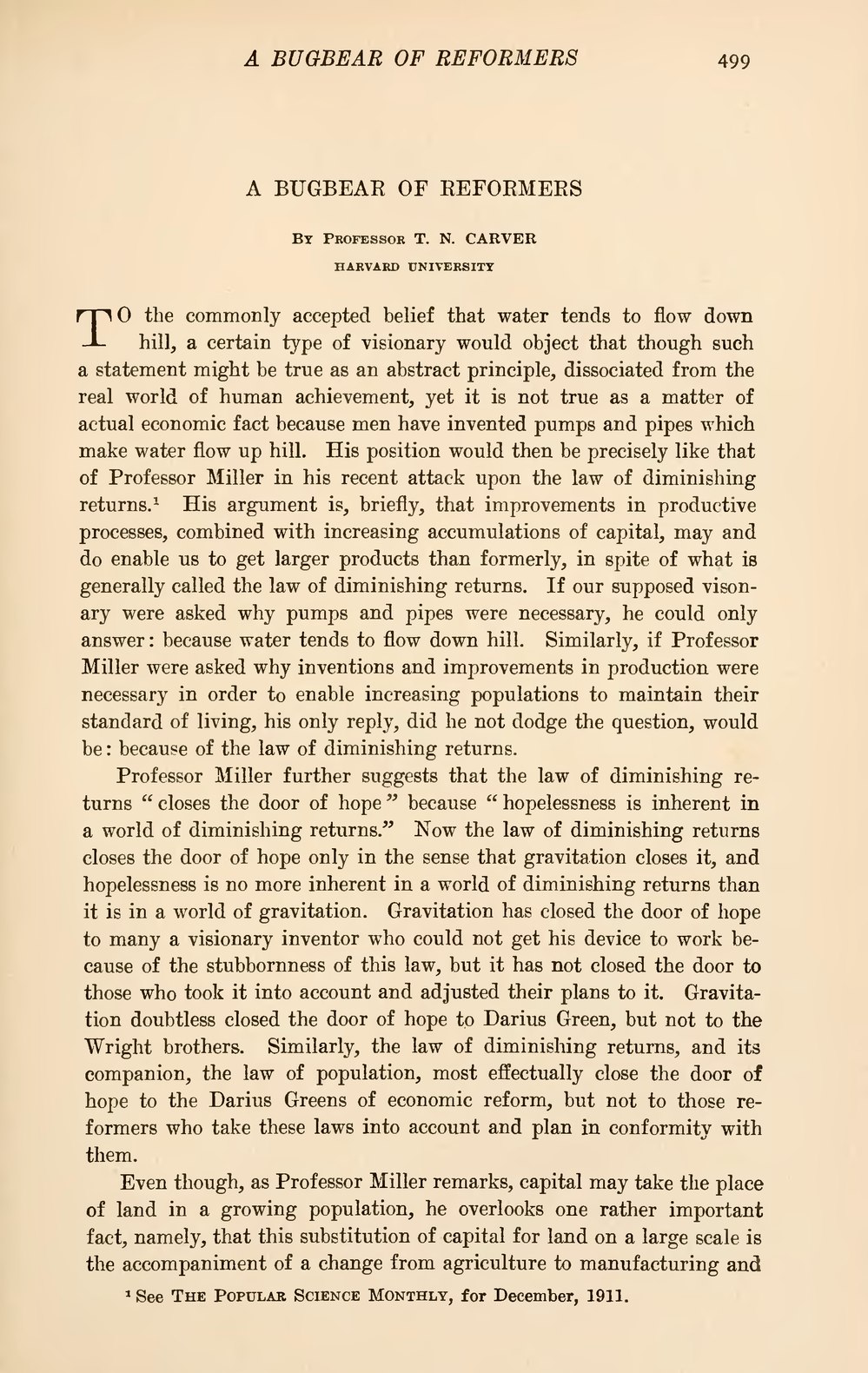| A BUGBEAR OF REFORMERS |
By Professor T. N. CARVER
HARVARD UNIVERSITY
TO the commonly accepted belief that water tends to flow down hill, a certain type of visionary would object that though such a statement might be true as an abstract principle, dissociated from the real world of human achievement, yet it is not true as a matter of actual economic fact because men have invented pumps and pipes which make water flow up hill. His position would then be precisely like that of Professor Miller in his recent attack upon the law of diminishing returns.[1] His argument is, briefly, that improvements in productive processes, combined with increasing accumulations of capital, may and do enable us to get larger products than formerly, in spite of what is generally called the law of diminishing returns. If our supposed visonary were asked why pumps and pipes were necessary, he could only answer: because water tends to flow down hill. Similarly, if Professor Miller were asked why inventions and improvements in production were necessary in order to enable increasing populations to maintain their standard of living, his only reply, did he not dodge the question, would be: because of the law of diminishing returns.
Professor Miller further suggests that the law of diminishing returns "closes the door of hope" because "hopelessness is inherent in a world of diminishing returns." Now the law of diminishing returns closes the door of hope only in the sense that gravitation closes it, and hopelessness is no more inherent in a world of diminishing returns than it is in a world of gravitation. Gravitation has closed the door of hope to many a visionary inventor who could not get his device to work because of the stubbornness of this law, but it has not closed the door to those who took it into account and adjusted their plans to it. Gravitation doubtless closed the door of hope to Darius Green, but not to the Wright brothers. Similarly, the law of diminishing returns, and its companion, the law of population, most effectually close the door of hope to the Darius Greens of economic reform, but not to those reformers who take these laws into account and plan in conformity with them.
Even though, as Professor Miller remarks, capital may take the place of land in a growing population, he overlooks one rather important fact, namely, that this substitution of capital for land on a large scale is the accompaniment of a change from agriculture to manufacturing and
- ↑ See The Popular Science Monthly, for December, 1911.

